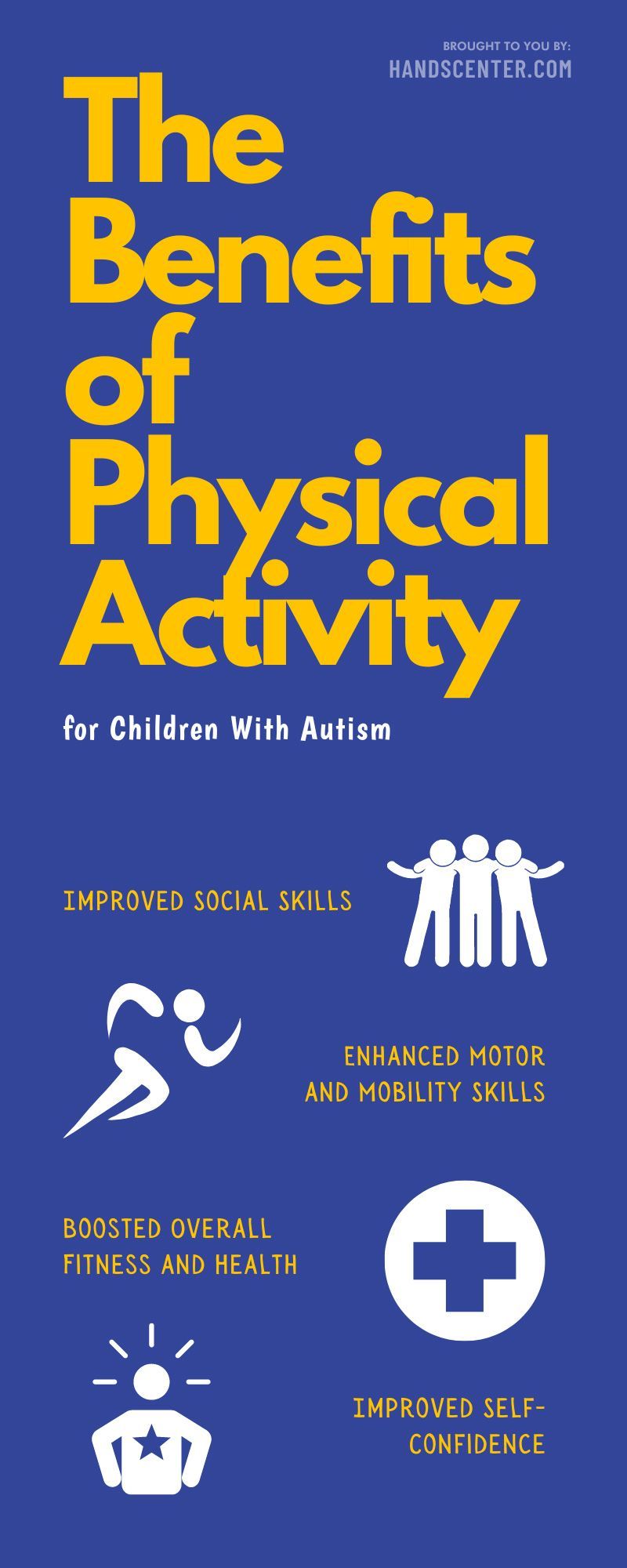The Benefits of Physical Activity for Children With Autism
Whenever we seek to boost our health and well-being, often the first thing doctors recommend is exercise. Physical activity is essential for maintaining a healthy lifestyle, including for children with autism. The benefits of exercise go beyond health-related improvements, as it can also improve your child’s mental health, self-confidence, and development skills.
Physical activity doesn’t have to be vigorous. You can spend the day swimming, playing tennis, running around the park, or relaxing. Introducing various exercises to your child will help them engage with new things more comfortably and boost their self-confidence.
For a closer look at how exercise can be great for your child, here are a few benefits of physical activity for children with autism. You might try a few of these activities this weekend!
The Advantages of Physical Activity
Physical activity can improve the well-being and health of anyone, including children with autism. These benefits range from decreased health risks to mastered motor skills, making a positive difference in the child’s life. Integrating fitness into your child’s routine can alleviate stress and improve their quality of life. Let’s dig deeper into the benefits of physical activity for children with autism.
Improved Social Skills
Youth participating in physical activity programs will have more opportunities to use their social skills. Group activities like soccer, horseback riding, softball, and basketball are a few examples of programs that are fun, safe settings for children to interact with one another.
Most sports require players to communicate verbally and nonverbally to their teammates, giving them opportunities to practice communication skills as well. By joining community programs, you can meet other parents and your child can build friendships. Through sports, your child can branch out in hobbies and friendships.
Enhanced Motor and Mobility Skills
Your child has numerous opportunities to gain and master motor skills by joining activity programs or engaging in physical activity regularly. Most activities require knowing the fundamentals of motor skills, such as throwing or catching. These skills can improve as your child practices, eventually resulting in better throwing, catching, or running endurance.
Physical activity can also improve your child’s hand-eye coordination, balance, and mobility skills. This is a great life skill to instill independence and life fulfillment. Jumping on a trampoline, playing ping pong, and following fitness video games are a few examples of activities that can help enhance motor and mobility skills.
Boosted Overall Fitness and Health
Engaging in physical activity regularly has many health benefits. Exercising can enhance your child’s muscular strength and aerobic fitness, giving them the endurance to push harder. Programs like swimming, horseback riding, and tennis provide low-impact, enjoyable means of becoming stronger and healthier.
Improved Self-Confidence
We love our children. We think they’re the coolest kids on the block, but it’s even better when they believe it themselves. Fostering self-confidence in your child is one of your biggest priorities as a parent and caregiver.
Teaching your children self-love, self-care, and self-worth will give them a fulfilling life. By encouraging them to participate in any physical activity they enjoy, they will become confident in their activity. This confidence will manifest in the other things they do, making them more comfortable trying new activities.
How Can I Make Physical Activity Exciting?
As a parent or caregiver of a child with autism, you’re no stranger to creating strategies to find ways to help your child engage with something new. But how can you make physical activity exciting? Introducing fun activities, such as scavenger hunts, outdoor bowling, or going on an adventure walk, is a great way to make your child keener to exercise. Let’s explore a few ways that can help you be more encouraging for your child.
Remember To Start Small
Jumping into a new activity can be overwhelming for your child. For a better experience, it’s best to start small and build your way up. In other words, allow your child to play for shorter periods throughout the day. Add a little bit of activity into their daily routine, such as the following options:
- Walking the dog in the morning
- Playtime after lunch
- After-school program
- After-dinner activity
If you want to enroll your child in after-school programs, try having them hang out with one or two friends first to see how your child reacts. You want to think long term, so being patient and working slowly is the best practice with any of these activities. Eventually, your child will likely be able to engage in more physical activity each day.
Try a Wide Variety of Exercises
Your child can participate in various activities that will benefit their well-being. Activities like dancing, jump-roping, mini-golfing, playing hopscotch, and doing water aerobics are enjoyable and physically beneficial exercises. Allowing your child to try numerous activities and find the one that works best for them will set them up for success.
A few activities you could consider adding to your child’s daily or weekly cycle are the following:
- A weekly dance party
- Scavenger hunts or obstacle courses
- Daily bike rides
- Trips to the park
- Bubble blowing and catching
- Jumping on the trampoline
Get the Whole Family To Join
It takes a village, and encouraging your immediate family to join in on the fun will help make fostering activities for your child easier. You, your child’s siblings, and their close friends impact their engagement and interest in new things. Creating a positive experience for your child will help them leave with a good, safe impression of the activity. They will feel more comfortable participating and trying new things.
You should also encourage your child’s teachers, especially their PE teachers, to share goals with you to ensure your child meets benchmarks. You can also share your child’s needs and abilities with teachers so everyone is equipped to help your child in the best ways. Eventually, this coordination can help your child gain the skills to excel in academic areas beyond PE.
As parents and caregivers, it’s our job to ensure our children go above and beyond their goals. Encouraging our children to engage in physical activity can help them create a healthy and fulfilling lifestyle and routine. For extra support, join us for ABA training for parents in North Carolina. Our team will give you the tools to practice ABA techniques and methods at home to help instill desirable behaviors and skills.







